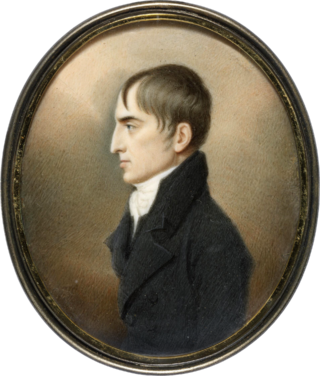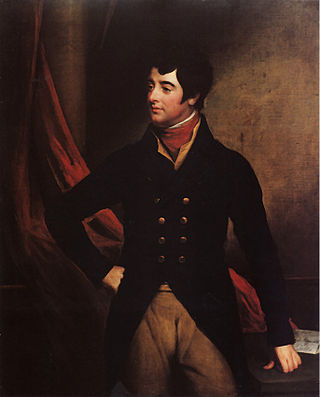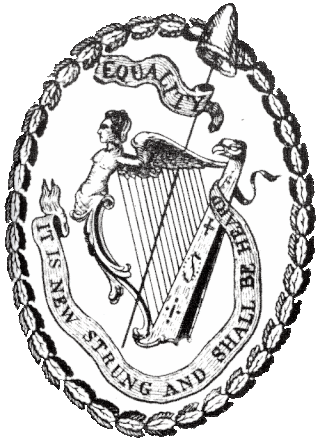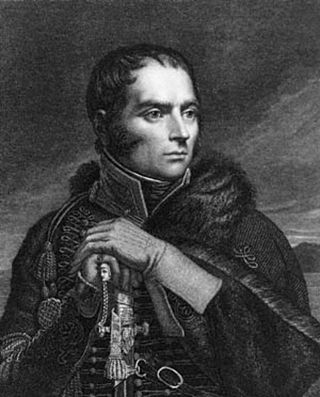This article includes a list of references, related reading, or external links, but its sources remain unclear because it lacks inline citations .(June 2019) |
Liam Chambers is an Irish historian and academic.
This article includes a list of references, related reading, or external links, but its sources remain unclear because it lacks inline citations .(June 2019) |
Liam Chambers is an Irish historian and academic.
Chambers writes on political, religious and social aspects of Irish culture during the 18th century, with special attention to Irish migration to continental Europe in that era.
Liam Chambers’ research interests include the political, social, cultural and religious history of eighteenth century Ireland. He is especially interested in the history of Irish migration to continental Europe in the early modern period, and the history of ideas. He has contributed entries for biographical dictionaries, such as the Oxford Dictionary of National Biography.
Chambers is Senior Lecturer and Head of the Department of History at Mary Immaculate College, University of Limerick.

Robert Emmet was an Irish Republican, orator and rebel leader. Following the suppression of the United Irish uprising in 1798, he sought to organise a renewed attempt to overthrow the British Crown and Protestant Ascendancy in Ireland and to establish a nationally representative government. Emmet entertained, but ultimately abandoned hopes of immediate French assistance and of coordination with radical militants in Great Britain. In Ireland, many of the surviving veterans of '98 hesitated to lend their support, and his rising in Dublin in 1803 proved abortive.

Theobald Wolfe Tone, posthumously known as Wolfe Tone, was a leading Irish revolutionary figure and one of the founding members in Belfast and Dublin of the United Irishmen, a republican society determined to end British rule, and achieve accountable government, in Ireland. Throughout his political career, Tone was involved in a number of military engagements against the British navy. He was active in drawing Irish Catholics and Protestants together in the United cause, and in soliciting French assistance for a general insurrection. In November 1798, on his second attempt to land in Ireland with French troops and supplies, he was captured by British naval forces. The United Irish risings of the summer had already been crushed. Tone died in advance of his scheduled execution, probably, as modern scholars generally believe, by his own hand.

Lord Edward FitzGerald was an Irish aristocrat and nationalist. He abandoned his prospects as a distinguished veteran of British service in the American War of Independence, and as an Irish Parliamentarian, to embrace the cause of an independent Irish republic. Unable to reconcile with Ireland's Protestant Ascendancy or with the Kingdom's English-appointed administration, he sought inspiration in revolutionary France where, in 1792, he met and befriended Thomas Paine. From 1796 he became a leading proponent within the Society of United Irishmen of a French-assisted insurrection. On the eve of the intended uprising in May 1798, he was fatally wounded in the course of arrest.

The Society of United Irishmen was a sworn association in the Kingdom of Ireland formed in the wake of the French Revolution to secure "an equal representation of all the people" in a national government. Despairing of constitutional reform, and in defiance both of British Crown forces and of Irish sectarian division, in 1798 the United Irishmen instigated a republican rebellion. Their suppression was a prelude to the abolition of the Irish Parliament in Dublin and to Ireland's incorporation in a United Kingdom with Great Britain. An attempt to revive the movement and renew the insurrection following the Acts of Union led to an abortive rising in Dublin in 1803.
The City of Dublin can trace its origin back more than 1,000 years, and for much of this time it has been Ireland's principal city and the cultural, educational and industrial centre of the island.

The Irish Rebellion of 1798 was a major uprising against British rule in Ireland. The main organising force was the Society of United Irishmen, a republican revolutionary group influenced by the ideas of the American and French revolutions: originally formed by Presbyterian radicals angry at being shut out of power by the Anglican establishment, they were joined by many from the majority Catholic population.
The Battle of Naas took place in Ireland on 24 May 1798.
The Gibbet Rath executions, sometimes called the Gibbet Rath massacre, refers to the execution of several hundred surrendering rebels by government forces during the Irish Rebellion of 1798 at the Curragh of Kildare on 29 May 1798.

The history of Ireland from 1691–1800 was marked by the dominance of the Protestant Ascendancy. These were Anglo-Irish families of the Anglican Church of Ireland, whose English ancestors had settled Ireland in the wake of its conquest by England and colonisation in the Plantations of Ireland, and had taken control of most of the land. Many were absentee landlords based in England, but others lived full-time in Ireland and increasingly identified as Irish.. During this time, Ireland was nominally an autonomous Kingdom with its own Parliament; in actuality it was a client state controlled by the King of Great Britain and supervised by his cabinet in London. The great majority of its population, Roman Catholics, were excluded from power and land ownership under the penal laws. The second-largest group, the Presbyterians in Ulster, owned land and businesses but could not vote and had no political power. The period begins with the defeat of the Catholic Jacobites in the Williamite War in Ireland in 1691 and ends with the Acts of Union 1800, which formally annexed Ireland in a United Kingdom from 1 January 1801 and dissolved the Irish Parliament.
Sir Rory O'Moore, also known Sir Roger O'Moore or O'More or Sir Roger Moore, was an Irish landowner, and is most notable for being one of the four principal organizers of the Irish Rebellion of 1641.

MylesByrne was an insurgent leader in Wexford in the Irish Rebellion of 1798 and a fighter in the continued guerrilla struggle against British Crown forces in the Wicklow Hills until 1802. In 1803 collaborated closely with Robert Emmet in plans for a renewed insurrection in Dublin. After these misfired, he took a commission in Napoleon’s Irish Legion, seeing action in the Low Countries, Spain and at the Battle of Leipzig. Under the Bourbon Restoration he was deployed to Greece, and retired as a chef de bataillon. In his later years, he was the Paris correspondent for the Young Irelander paper The Nation, and dictated his memoirs. In these, he advanced the image of the United Irishmen as a cohesive revolutionary organisation dedicated to the achievement of a national democratic government.
Events from the year 1798 in Ireland.
Father James Coigly was a Roman Catholic priest in Ireland active in the republican movement against the British Crown and the kingdom's Protestant Ascendancy. He served the Society of United Irishmen as a mediator in the sectarian Armagh Disturbances and as an envoy both to the government of the French Republic and to radical circles in England with whom he sought to coordinate an insurrection. In June 1798 he was executed in England for treason having been detained as he was about to embark on a return mission to Paris.

Arthur O'Connor, was a United Irishman who was active in seeking allies for the Irish cause in England and in France. A proponent of radical democratic reform, in Ireland he was distinguished by publishing political appeals to women. Arrested on the eve of the 1798 rebellion, in 1802 he went into exile in France where, after being raised to the rank of General in a force that was to invade Ireland, fell out of favour with Napoleon. Among the positions he maintained publicly in his final years were a defence of the July Revolution in Paris and opposition to what he saw as the clericalism of Daniel O'Connell's movement in Ireland.

The Irish rebellion of 1803 was an attempt by Irish republicans to seize the seat of the British government in Ireland, Dublin Castle, and trigger a nationwide insurrection. Renewing the struggle of 1798, they were organised under a reconstituted United Irish directorate. Hopes of French aid, of a diversionary rising by radical militants in England, and of Presbyterians in the north-east rallying once more to the cause of a republic were disappointed. The rising in Dublin misfired, and after a series of street skirmishes, the rebels dispersed. Their principal leader, Robert Emmet, was executed; others went into exile.

Arthur Wolfe, 1st Viscount Kilwarden was an Anglo-Irish peer, politician and judge, who held office as Lord Chief Justice of Ireland. He was assassinated during the Irish rebellion of 1803.

Michael Moore (c.1639–1726) was an Irish priest, philosopher and educationalist.

Daire Kilian Keogh is an academic historian and third-level educational leader, president of Dublin City University (DCU) since July 2020.
Louis-Gilles Delahogue (1739-1827) was a French priest and academic, who was exiled following the French Revolution and moved to Ireland. His surname particularly in French is sometimes written as De La Hogue. Delahogue graduated from the Sorbonne and was a Professor of Sacred Scripture at the University of Paris, Sorbonne and Royal Censor from 1772 until after the revolution. Initially, after the September massacres in Paris in 1792, Delahogue found refuge and employment in London, England, where he spent six years before he moved to Ireland. In 1798, he was appointed the professor of Moral Theology, at the newly established Royal College of St. Patrick, Maynooth, Ireland. In 1801 he moved from Moral Theology to succeed Rev. Maurice Aherne as Professor of Dogmatic Theology.